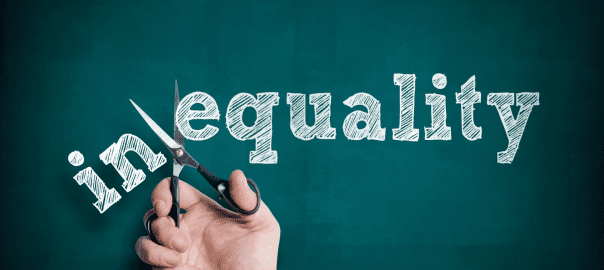April 27, 2023 /Social/ — Systemic inequality is a complex issue with many contributing factors. It can be difficult to identify and address all of the factors that contribute to systemic inequality, but there are a number of things that can be done to create a more equitable society.
One of the most important things is to raise awareness of the issue of systemic inequality. Many people are unaware of the ways in which systemic inequality affects their lives and the lives of others. By raising awareness of the issue, we can start to create a more just and equitable society.
Some of the most common factors include:
- Racism: Racism is a system of oppression that privileges white people and disadvantages people of color. It can manifest in a variety of ways, including discrimination in housing, employment, education, and the criminal justice system.
- Sexism: Sexism is a system of oppression that privileges men and disadvantages women. It can manifest in a variety of ways, including discrimination in the workplace, the media, and the healthcare system.
- Classism: Classism is a system of oppression that privileges people with wealth and disadvantages people with poverty. It can manifest in a variety of ways, including discrimination in education, healthcare, and the criminal justice system.
- Ableism: Ableism is a system of oppression that privileges people without disabilities and disadvantages people with disabilities. It can manifest in a variety of ways, including discrimination in employment, education, and the healthcare system.
- Xenophobia: Xenophobia is a fear or hatred of people who are different, often based on their race, ethnicity, or national origin. It can manifest in a variety of ways, including discrimination in housing, employment, and education.
- Homophobia: Homophobia is a fear or hatred of people who are gay, lesbian, bisexual, or transgender. It can manifest in a variety of ways, including discrimination in housing, employment, and education.
- Transphobia: Transphobia is a fear or hatred of people who are transgender. It can manifest in a variety of ways, including discrimination in housing, employment, and education.
Another important thing is to educate people about the different forms of systemic inequality. There are many different forms of systemic inequality, including racism, sexism, classism, and ableism. By educating people about these different forms of inequality, we can help them to understand how they can contribute to creating a more equitable society.
We can also work to change the systems and structures that perpetuate systemic inequality. This can be done by advocating for policy changes, supporting organizations that are working to address systemic inequality, and participating in protests and other forms of activism.
Here are a number of things that can be done to address systemic inequality. Some of the most important things include:
- Racial justice: We can work to dismantle the systems of racism that exist in our society. This includes things like advocating for police reform, supporting organizations that are working to fight racial injustice, and speaking out against racism in our everyday lives.
- Gender equality: We can work to create a society where women have equal opportunities and rights as men. This includes things like advocating for equal pay for equal work, supporting organizations that are working to fight gender inequality, and speaking out against sexism in our everyday lives.
- Economic justice: We can work to create a society where everyone has the opportunity to succeed, regardless of their income or social class. This includes things like advocating for policies that support the working class, supporting organizations that are working to fight poverty, and speaking out against classism in our everyday lives.
- Disability justice: We can work to create a society where people with disabilities have equal opportunities and rights as people without disabilities. This includes things like advocating for the rights of people with disabilities, supporting organizations that are working to fight ableism, and speaking out against discrimination against people with disabilities in our everyday lives.
- LGBTQ+ justice: We can work to create a society where LGBTQ+ people have equal opportunities and rights as cisgender and heterosexual people. This includes things like advocating for the rights of LGBTQ+ people, supporting organizations that are working to fight homophobia and transphobia, and speaking out against discrimination against LGBTQ+ people in our everyday lives.
Finally, we can all make a personal commitment to fighting against systemic inequality. This can be done by being aware of our own biases, speaking out against injustice, and supporting people who are marginalized.

